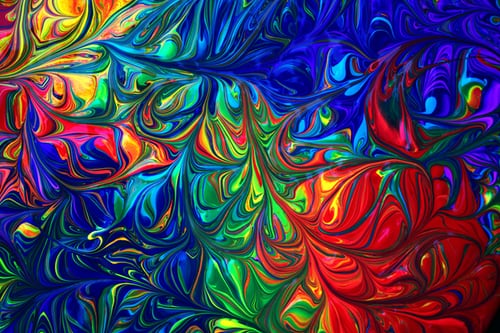
Why Study The Arts, Humanities and Social Sciences?
Choosing subjects to study is an important consideration, of this there is no doubt. However, in recent years the campaign for jobs and the drive for individuals to study employment-specific STEM (science, technology, engineering and mathematics) subjects has left the arts, the humanities and the social sciences in an undermined position.
From Sociology to Literature, History to Psychology and Geography, these, and many more are all considered to be under the broad umbrella of the Humanities, with Psychology, Sociology, and Geography sub-grouped into social sciences.
Humanities are Not “Career Suicide”
So would anyone consider studying a course that sets you up for what some have termed as ‘career suicide’? Is it worth it? What will be achieved other than a confirmed ability to follow a prescribed syllabus and learn the required information to pass exams or produce coursework?
George Anders, in his book entitled You can do anything: The Surprising power of a ‘Useless’ Liberal Arts Education, says “curiosity, creativity, and empathy aren’t unruly traits that must be reigned in to ensure success. The job market is quietly crying out for people who can bring a humanist’s grace to our rapidly evolving high-tech future.”
Tempering the needs of a rapidly growing STEM world needs to be the humanising of The Arts, ensuring that the heart and soul of the species, as well as its stomach and head, are catered for.
The Lifelong and Ongoing Benefits of Humanities
So what will studying the Humanities actually, broadly, offer? Aside from all the subject-specific knowledge, ‘training’ in the Humanities and Arts offers an unparalleled depth of personal growth and mental diversification. The development of a student’s ability to critique systems of behaviour, work and politics ensures that individuals are able view their work (and life) situation with a clear and reflective, empathetic yet unflinching gaze.
Being able to hold and ‘apply’ multiple perspectives on a subject and really ‘feel’ the impact of those perspectives offers real-time, realistic views on potential impact and change in any given area. The student is working towards gaining an understanding of the historical, predictive, economic, social and cultural layers that are part of any given situation. It is far from easy, rather it is the equivalent of a mental Olympic sport, and no mean feat.
The training involved in developing these capacities and increasing the knowledge base behind them is not as simple as it is often made out to be. It is a lifelong pursuit in stretching understanding and increasing mental flexibility. To be able to juggle the range of incredible global and individual states and concepts is every bit as important a role as Einstein believed it to be when he is quoted in Phillip Frank’s book, Einstein: His life and times : “the value of an education in a liberal arts college is not the learning of many facts but the training of the mind to think of something that cannot be learnt from textbooks”.
An Asset to Industry
Knowing oneself in relation to the micro of one’s own society and the macro of an increasingly globalised world can be applied to the job market as well as to the after dinner discussion.
To be able to holistically, empathically, and with humanity, understand the multiple situations and issues that humanity faces, and to be able to address them from a standpoint that is complementary with the STEM point of view will always be valuable. The Arts and Humanities offer us more than ‘just’ problem solving, they offer us the movie reel, as well as the means and the reasons for creating the necessary artefact.
Locating the human self in the midst of the need for new technology and adapted processes is a way of ensuring that the species stays positively anchored in more than just a physical, practical way. What does it mean to be human without the arts? Considering a social, economic and political world without the evolving soul of humanity is merely an existence.
So, go ahead and follow the passionate pursuit of intellectual and artistic learning and see which worlds open up for you to explore. A colourful, terrible and incredible past and future of the world awaits.
To find George Enders’ book You can do anything: The Surprising Power of a “Useless Liberal Arts Education, follow this link: https://www.georgeandersbooks.com/
Follow this link to find Phillip Franks’s Einstein: his Life and Times